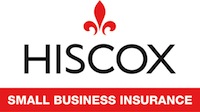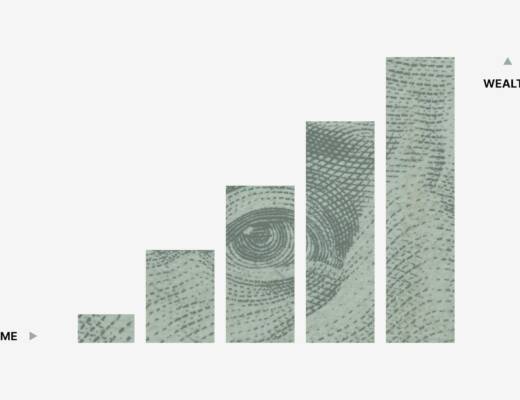
Hiscox Courageous Entrepreneur Interview Series
 This is part one of the ten part series. Follow the Hiscox Courageous Entrepreneur interview series on Under30CEO.com.
Interview Series Sponsored by Hiscox Small Business Insurance. Hiscox specializes in protecting IT/technology, marketing, consulting, health and beauty, photography and many other professional services businesses, tailoring coverage to the specific risks in your industry.
It takes courage to be the founder of a business. It also often involves a bit of uncertainty and naivety, as when we make the plunge into entrepreneurship, we don’t always know what we’re getting into. It also takes courage to be a teacher. Isha Edwards is both, but she didn’t always have ‘founder’ next to her name.
“[Starting a business] wasn’t something I planned to do. My goal was to teach business education, and in doing so, I encouraged students to be entrepreneurs and leaders…One day, one of my accounting students asked me, “If you know so much, why don’t you have a business?” To be a master, you have to be the example. I started a business to go through the process of entrepreneurship.”
Accepting the student’s challenge took Isha on a journey over the next four years. The path she took led her to create EPiC Measures (EM), a brand-driven marketing consultancy. When EM launched in 2001, it served as a resource for individuals and organizations with communications needs. Four years later, EM expanded to provide marketing consulting services. Today, EM’s client base spans 12 industries, including music, media, academia, fashion, and professional services.
This is part one of the ten part series. Follow the Hiscox Courageous Entrepreneur interview series on Under30CEO.com.
Interview Series Sponsored by Hiscox Small Business Insurance. Hiscox specializes in protecting IT/technology, marketing, consulting, health and beauty, photography and many other professional services businesses, tailoring coverage to the specific risks in your industry.
It takes courage to be the founder of a business. It also often involves a bit of uncertainty and naivety, as when we make the plunge into entrepreneurship, we don’t always know what we’re getting into. It also takes courage to be a teacher. Isha Edwards is both, but she didn’t always have ‘founder’ next to her name.
“[Starting a business] wasn’t something I planned to do. My goal was to teach business education, and in doing so, I encouraged students to be entrepreneurs and leaders…One day, one of my accounting students asked me, “If you know so much, why don’t you have a business?” To be a master, you have to be the example. I started a business to go through the process of entrepreneurship.”
Accepting the student’s challenge took Isha on a journey over the next four years. The path she took led her to create EPiC Measures (EM), a brand-driven marketing consultancy. When EM launched in 2001, it served as a resource for individuals and organizations with communications needs. Four years later, EM expanded to provide marketing consulting services. Today, EM’s client base spans 12 industries, including music, media, academia, fashion, and professional services.
Product > Business
Business building is all the rage. I can’t tell you how many times I have uttered the phrase, “That could be a business!” In all of this hype, we often forget that you actually have to sell something – a product. Whether it’s a weekly cleaning service or a hoverboard, as entrepreneurs, we need to have an attractive product to offer a specific audience. “A business is nothing more than a tax and a legal structure. You don’t have to have a business to be in business. You can create something without ever having a business. You can start a business, and fill out paperwork and get your legal and tax structure in place, but if you don’t have a product that someone is willing to buy, you just created a huge expense and you have no income. … Make sure that you have something that can be sold. That’s what validates if you actually need a business.” Isha has applied this concept to her own business when monetizing her consulting services and also stresses this to the young entrepreneurs she teaches and mentors.Getting Courageous
Stepping out on her own and starting a business from scratch was something different for Isha, but it led her closer to her ultimate goal of empowering people. Although you may argue she was already doing so as a teacher, the accounting student’s comment helped urge her to learn from experience to then teach from experience. Plus, a student can’t say she isn’t practicing what she’s preaching anymore! The definition of courageous is “not deterred by danger or pain; brave.” Although facing physical danger or pain, like our heroes in the armed forces face, on a daily basis is not usually part of being an entrepreneur, financial and mental health are definitely at risk.Q: Do you consider entrepreneurs courageous?
A: Entrepreneurs are courageous people because they’re leaving the comforts of ‘home’ in a sense. When you become an entrepreneur, you leave the security of working for someone and having someone else manage your work behind and take on all of the risk.
Taking the jump into entrepreneurship is admirable. Doing so while contributing to the success of students at the same time – that’s what I would call an ‘EPIC measure.’ Be epic! Listen to the full interview with Isha Edwards below. Interview Highlights: – “Focus on the 1-3 things you do really, really well. Differentiate those things– this will help you focus on your strengths, develop and grow.” – “With a personal brand, there are two products – the person and the intellectual property that the person produces.” – Q: How important is insurance to your business, and do you rely on it? A: “In my case, a lot of clients I have require business insurance. Things do go wrong. However, thankfully, I haven’t had to use it. No different from car insurance, there can be one day that you don’t have it, where you wish you would have, so I do have business insurance.” – “It’s really critical for a personal brand to be mindful of who they are, what their mission is, and what their story is.” – Turning a product into a robust business: “When looking at a product, look at the longevity of it as a business model, and then look at if that product can be expanded or duplicated into another relevant market.” – “Writing is a marketing tool, which draws a lot of business now. I discourage having a blog just because everyone else has one. You need to align yourself with existing publications that already have great content, because they already have a built-in audience.” – “You don’t have to look far to find your purpose. You don’t have to look far to find your passion. Your business is an extension of who you are and what your passion is. Follow the breadcrumbs of your passion. You’ll get to your end much sooner.”



